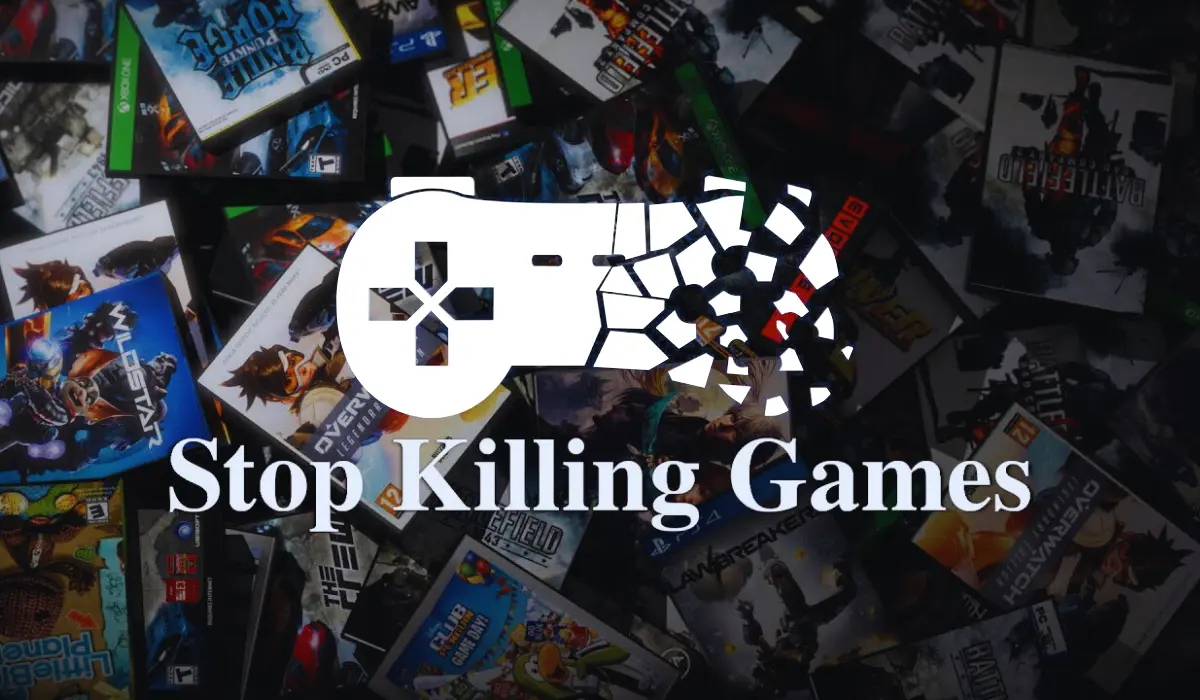With the video game industry exhibiting significant growth this year, various concerns have emerged regarding the potential transition of games into merely a consumer good, especially amidst the growing occurrences of developers withdrawing support within a particular time of release.
However, with the help of the “Stop Killing Games” movement, online gamers have managed to bring this issue to the attention of the law, resulting in proposals to introduce new rules and regulations.
This article focuses on the “Stop Killing Games” movement, delving into its origin, impact, practicalities, and criticisms.
What is the “Stop Killing Games” Movement?
“Stop Killing Games” is an online movement by video game consumers to address the legality of publishers withdrawing their support for a game that they sold to customers, making it unplayable.
Created by Ross Scott, known for his YouTube-based Accursed Farms and the Freeman’s Mind series, the campaign allows gamers to sign petitions to rework existing laws and implement new laws to address the issue.

Origin of the “Stop Killing Games” Movement
When Ubisoft’s online racing game The Crew’s servers were shut down on April 1st, 2024, it became completely unplayable, and no offline version was provided. The company revoked the licenses of players without providing any refunds, creating backlash online.
The next week, Ross Scott introduced the “Stop Killing Games” movement’s website through his YouTube channel as a response to this issue. The initiative urged the players to file a complaint to the General Directorate of Competition, Consumption & Repression of Frauds (DGCCRF) of France, against The Crew and similar games.
According to Scott, selling a game based on the servers and later shutting the servers down, without informing the expiry to buyers before the purchase, is essentially a form of planned obsolescence, and makes preservation of the game impossible.
The Impact of the “Stop Killing Games” Movement
Since the reveal, the Stop Killing Games petitions received a massive number of signatures from the gamers, forcing the authorities to consider new legal proposals. As of today, most of the issues raised by the gamers have been addressed and are awaiting final approval from various authorities.
- The movement resulted in the launch of a European Citizens’ Initiative that proposes a new law in the European Union against publishers consciously destroying the already sold games.
- Addressed the issue in the European Commission with the help of Member of European Parliament Niklas Nienaß and MEP Patrick Breyer. The response from the commission agrees that the games of this nature violate Directive 93/13/EEC, but it’s up to the member states to resolve.
- The complaints submitted to DGCCRF have been accepted and investigated. The final decision is pending. The investigations about the issue are still ongoing in Germany, Australia, Canada, and the USA.
The Practical Possibilities of “Stop Killing Games”
If the developers withdraw server support, most games become inoperable, and various companies deliberately cut off the offline option and prevent users from repairing/modifying the files. While the “Stop Killing Games” movement condemns this and demands continued server support for games, it also raises various questions, mainly regarding the practicalities.
The movement is aware that lifelong server support for a game is practically impossible; instead, it requests a lifelong permission to modify or patch the game. Participants can use their private servers or shared servers. However, it can collide with the existing laws on intellectual property rights, depending on the specific country.
California law AB 2426 was implemented in September 2024, allowing customers to know what they are getting before the purchase. The law makes it illegal to write the terms “Buy” and “Purchase” if the digital goods provide a license that can be revoked.
Recommended Reading: How Many Copies of Helldivers 2 Have Been Sold? – 2025
Conclusion
“Stop Killing Games” movement addresses one of the most important issues of the online video games market, and reveals the importance of creating a new set of rules for digital goods. While the issue has been addressed by various authorities, no final practical solution has been implemented yet.

